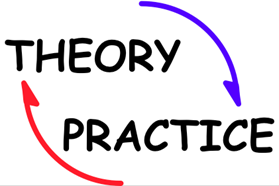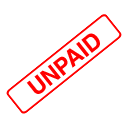 If you don’t believe you have a right to know, your questions will sound a beggar asking for food than a partner discussing topic. You are an equal partner in the sales call and in the vast majority of cases the prospect will be asking you to do something that requires effort ort expertise (like write a quote or send some information or describe your approach). Since they are not paying for the quote or the information they at least owe you the amount they are willing to spend if they like what they see. It is as simple as that. If you grasp that concept and believe it whole heartedly, your sales process will flow much more smoothly and you will not waste time with unqualified prospects.
If you don’t believe you have a right to know, your questions will sound a beggar asking for food than a partner discussing topic. You are an equal partner in the sales call and in the vast majority of cases the prospect will be asking you to do something that requires effort ort expertise (like write a quote or send some information or describe your approach). Since they are not paying for the quote or the information they at least owe you the amount they are willing to spend if they like what they see. It is as simple as that. If you grasp that concept and believe it whole heartedly, your sales process will flow much more smoothly and you will not waste time with unqualified prospects.
Archives for July 2015
Salespeople have rights too
Practice your sales techniques
 Practice doesn’t make perfect. Perfect practice makes perfect. Most salespeople just go on sales calls and wing it. Doctors, lawyers and engineers refer to their entire professional career as a “practice”. College basketball teams practice 4 times a week and play games once or twice a week. So it’s obvious then that salespeople need more practice time. But what do you practice? You should practice using the sales techniques in non-selling situations. Practice them in role playing situations with a spouse or a colleague. It’s important to get the tonality right and it’s important to have the words down so you don’t have to think about them and it’s important so that you can react without thinking. So for stop reading this and go practice. Nothing less than your income depends on it.
Practice doesn’t make perfect. Perfect practice makes perfect. Most salespeople just go on sales calls and wing it. Doctors, lawyers and engineers refer to their entire professional career as a “practice”. College basketball teams practice 4 times a week and play games once or twice a week. So it’s obvious then that salespeople need more practice time. But what do you practice? You should practice using the sales techniques in non-selling situations. Practice them in role playing situations with a spouse or a colleague. It’s important to get the tonality right and it’s important to have the words down so you don’t have to think about them and it’s important so that you can react without thinking. So for stop reading this and go practice. Nothing less than your income depends on it.
Sell Consultatively
 Selling consultatively is GOOD. Being and unpaid consultant is BAD. That’s it in a nutshell but what is the difference? Consultative selling involves the following:
Selling consultatively is GOOD. Being and unpaid consultant is BAD. That’s it in a nutshell but what is the difference? Consultative selling involves the following:
- Having a conversation with the prospect
- Asking questions
- Understanding the prospect’s pain
- Determining if the prospect is ready to buy
- Acting as an equal in the conversation
- Displaying your knowledge by the questions you ask
Being and unpaid consultant looks like this:
- Being treated like a “vendor” which is a synonym for servant
- Getting minimal information from the prospect
- Telling the prospect everything you know
- Solving problems in the sales call
- Providing quotes to prospects without a commitment to make a decision
- Providing quotes to unqualified prospects
- Bidding and hoping to win
I could go on but you get the idea. Sell consultatively but don’t be and unpaid consultant. They sound similar but there is a world of difference between the two.
Asked but not answered! Does it happen to you?
 When you ask a question you deserve an answer or at least a reason why they can’t give you an answer. Too many salespeople ask questions and don’t get an answer or get one that is so convoluted as to be meaningless. If you want to be sure you get an answer, there are two things you must do. You must first believe that you deserve an answer to the question. For example if you ask how much money the prospect wants to spend and you do not believe you deserve an answer, your tonality will communicate that belief to the prospect and they won’t tell you. (Why you would believe you don’t deserve an answer is the subject of a whole other video). Next you must expect to get an answer. These may sound like the same thing, but there is a subtle and profound difference. If I expect to get an answer the prospect will “sense” that expectation and be more compelled to tell me something meaningful. It sounds simple because it is simple. Try it and see what happens.
When you ask a question you deserve an answer or at least a reason why they can’t give you an answer. Too many salespeople ask questions and don’t get an answer or get one that is so convoluted as to be meaningless. If you want to be sure you get an answer, there are two things you must do. You must first believe that you deserve an answer to the question. For example if you ask how much money the prospect wants to spend and you do not believe you deserve an answer, your tonality will communicate that belief to the prospect and they won’t tell you. (Why you would believe you don’t deserve an answer is the subject of a whole other video). Next you must expect to get an answer. These may sound like the same thing, but there is a subtle and profound difference. If I expect to get an answer the prospect will “sense” that expectation and be more compelled to tell me something meaningful. It sounds simple because it is simple. Try it and see what happens.

